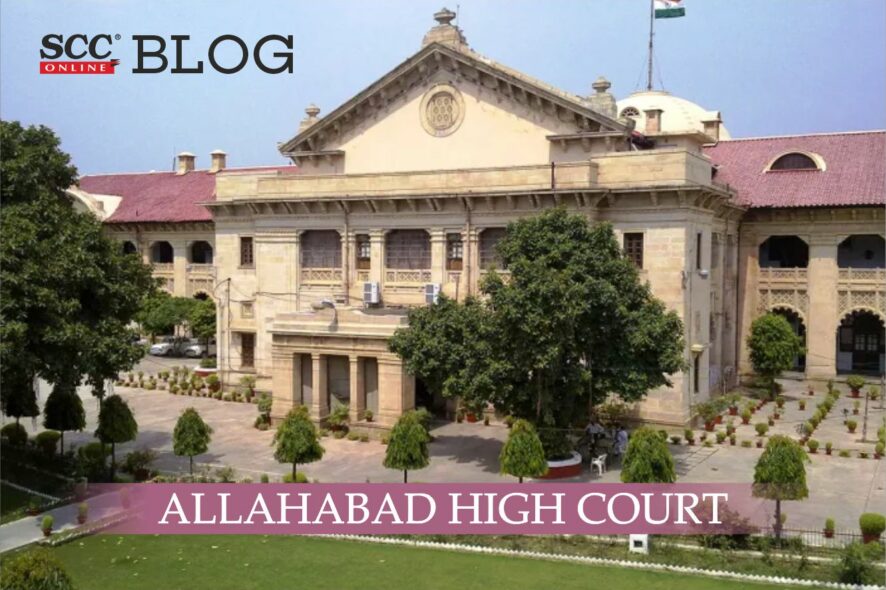Allahabad High Court: Alok Mathur, J. allowed a writ petition which was filed by the petitioner working as Lecturer (Hindi) in Rajkiya Balika Inter College, Hardoi. She was aggrieved by the order whereby her application for maternity leave from 18-11-2018 to 16-5-2019 had been rejected on the ground that she had previously availed maternity leave which ended on 18-5-2018, which was a period less than 2 years and hence was not entitled for the same holding that Maternity Benefits Act, 1961 Act (1961 Act) does not contain any such stipulation regarding the time difference between the first and second child for the grant of maternity benefits.
Counsel for the petitioner submitted that petitioner after expecting a child had applied for maternity leave for a period of 174 days which was duly sanctioned and the petitioner gave birth to a baby boy on 29-1-2018, but unfortunately the newborn child passed away due to cardio respiratory arrest on 30-1-2018, just a day after his birth. The petitioner again conceived for the second time and applied for maternity leave for a period of 24 weeks from 18-11-2018 to 16-05-2019, which was rejected. It was contended that the said order would run contrary to the mandatory provisions of the 1961 Act.
Standing counsel, on the other hand, has submitted that the impugned order is in conformity with the provisions of Rule 153(1) of the Financial Handbook Volume II to IV where a restriction has been placed for grant of maternity benefits prior to 2 years having lapsed from the date of expiry of the last maternity leave granted under the Rule. It has further been submitted that the provisions of Financial Handbook volume II to IV would apply to the facts of the present case rather than the provisions of the Maternity Benefits Act, 1961.
The Court reproduced the relevant provisions of 1961 Act and opined that the perusal of the aforesaid provisions of 1961 Act thus indicate that a woman would be entitled to give notice in writing for grant of maternity benefit and on receipt of notice the employer shall permit such woman to absent herself from the establishment during the period for which she receives the maternity benefit. The 1961 Act does not contain any such stipulation of the time difference between grant of maternity benefit for the first and second child as stipulated in Rule 153 (1) of the Financial Handbook. Section 27 of 1961 Act categorically provides that the provisions of 1961 Act shall have effect notwithstanding anything inconsistent therewith contained in any other law whether made before or after coming into force of 1961 Act.
The Court further reproduced judgment of Municipal Corpn. of Delhi v. Female Workers (Muster Roll), (2000) 3 SCC 224 and various provisions of the Constitution for the finding the source and power to legislate with respect to the Maternity Benefit Act, 1961 were discussed. Consequently, the Court was of the opinion that the Maternity Benefit Act 1961 has been enacted by the Parliament on a subject which finds mention in entry 24 of list III, and it was totally within its competence to make such an enactment.
Lastly relying on Anshu Rani v. State of U.P., 2019 SCC OnLine All 5170, it was reiterated that once the provisions of the Maternity Benefit Act, 1961 has been adopted by the State of U.P. then the said Act of 1961 would apply with full force irrespective of the provisions contained in the Financial Handbook which is merely an executive instruction and would in any case be subsidiary to the legislation made by the Parliament.
The writ petition was allowed and the respondents were directed to grant maternity benefit to the petitioner in terms of the Maternity Benefit Act 1961.
[Satakshi Mishra v. State of U.P., 2022 SCC OnLine All 595, decided on 18-08-2022]
Advocates who appeared in this case :
Anurag Shukla, Abhishek Misra, Ishit Mishra, Advocates, Counsel for the Petitioner;
Ram Pratap Singh Chauhan, Advocate, Counsel for the Respondent.
*Suchita Shukla, Editorial Assistant has reported this brief.







